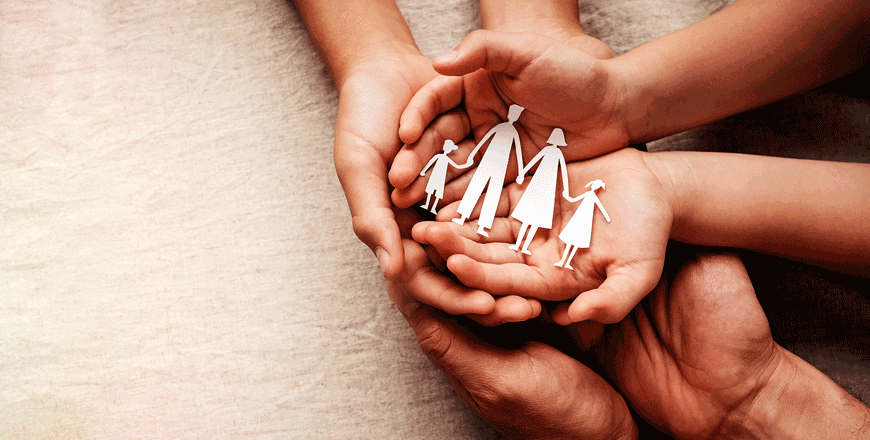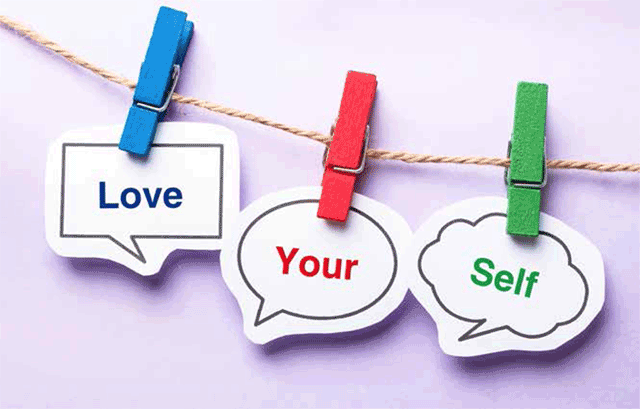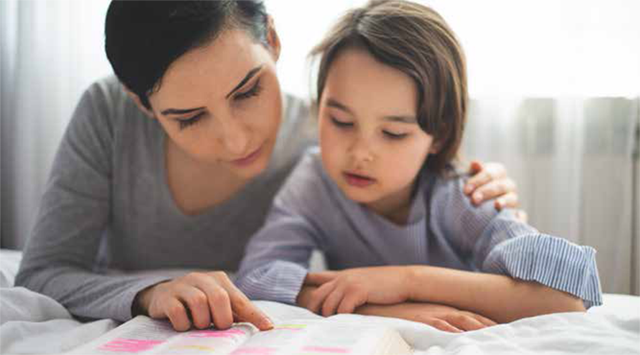You are here
You are your childhood
By Nathalie Khalaf , Family Flavours - May 28,2023 - Last updated at May 28,2023

Photo courtesy of Family Flavours magazine
By Nathalie Khalaf
Holistic Counsellor
One of the most beautiful experiences we can be blessed with in life is loving others and accepting their love in return. Relationships come in many forms: Those we have with our selves, with our parents, our siblings, our pets, with our extended family members, our romantic partners and society as a whole.
Our parents
The first relationship is the one we experience with our parents. As children we are sponges, absorbing the things we experience mentally, emotionally and physically. It is this early relationship with our parents that paves the way, setting “patterns” in terms of how we view our future relationships starting with our “selves”.
I intentionally separate “our” and “selves” as I feel it’s important to emphasise the “self’ here. If our parents showed us love and acceptance regardless of how we were as children, this will set the foundation for our self-love and acceptance in later life.
If we sensed negativity from our parents’ look, or detected altered tones in their speech (perhaps disapproval, anger or sadness), the same process occurs. This time, we are locked in a cycle of doubting, even disliking our selves as we mature. One of the most powerful quotes I’ve come across by Gibran Khalil Gibran, reads “God said ‘love your enemy, I obeyed him and loved myself’. For me, it shows the importance of not only physical health, but emotional health too. This helps develop healthy relationships as adults. It all starts and ends with us.”
A reflection of childhood
The way we are treated and brought up as children has everything to do with the way we treat our selves as adults and that becomes our “default programming”, or “internal dialogue”, so to speak.
If we weren’t hugged by our mothers then we will find it difficult to hug or hold our future partner or children. If we received conditional love from our parents, for being good girls or boys; if we did what pleased them by not making noise, not crying, not shouting, not voicing our opinion, not disagreeing with them, etc., then we will also express that same conditional love towards our selves.
There may come a day when we will struggle to accept what we are going through, or have difficulty accepting and loving “the new person we have become”. That sentence in itself carries a flawed concept; there is no right or wrong way to be and change is a constant in life.
Pulsating energy
We are made of pulsating energy. If, as children, we were loved unconditionally by being allowed to cry, scream, shout, voice our opinions, then that is also the love we will give to our selves and eventually others, be it friends or romantic partners. I am not saying parents have to let loose their children’s upbringing completely. Instead, parents can work on becoming more aware of themselves in order not to project what they want, or wish they could have been, vicariously onto their children.
Children are not born to be the clones of their parents, they are completely unique individuals. Parents can, and should, guide them along the way , but the red tape is trying to mould their child into improved versions of themselves.
Yes, this can be challenging, especially when we, as parents, are not conscious of our own ego, through which our behaviour plays out. But that’s for another article, so stay tuned!
When we love and accept our selves as we are, we approach others from a “full cup” instead of “one that needs to be filled”; we can begin to live life without the need for external validation. We have all heard the expression “that person completes me” but this is the wrong outlook, something we have been conditioned to believe, for no one is born “incomplete”.
Opposites attract?
Whether we believe in God or energy, God creates perfection, we are perfect. Therefore, we are all complete just the way we are. The expression “opposites attract” is more ideologically sound, simply because it means that on an energy level we have identified with certain aspects of our selves (aspects judged as good, in order to receive love and acceptance) and rejected other aspects (aspects judged as bad, which will block us from receiving love or acceptance).
The law of opposites will play its role in completing that energy circle. So, if you feel you are “such and such a person” (by placing your self in a box of certain attributes) you will automatically attract someone who has placed themselves in a box of the opposite attributes. Anything we feel we want to fix or change in others is a good indication for what needs healing within our selves.
When we grow up not fully loving, accepting or believing in our selves, we emit that responsibility onto others and that’s where things go wrong. As children we are expected to be a certain way in order to receive love. In fact, what happens is that the masks we wear become too heavy to bear after a while and who we truly are (all aspects of our selves) is what will show. Most of us become adults reflecting with conditional love towards our selves and therefore others because we have expectations of how “they should be”; men and women should be this and do that, for example, or, a partner should be… so. It is a vicious cycle. We do not really see the other person, but project an image of who we expect them to be, based on our past experiences instead.
When we choose to let go of expectations for our selves and replace this with pure acceptance of all that we are, it becomes easy to accept and love others, because we see them for who they are.
Reprinted with permission from Family Flavours magazine
Related Articles
“Don’t be selfish! Think of others before you think of yourself!” Most of us grew up hearing these words as part of our upbringing and education. Well, they are good but I’m here to tell you to “Please be selfish and think of yourself first!”
At a time when Facebook, Twitter and LinkedIn are pushing people to put forward their most polished, put-together selves, a new class of mobile applications aims for a bit more honesty.
Have you reflected on how your childhood experiences have shaped your parenting beliefs and practices? Are you intentional about not repeating dysfunctional relational patterns with your child?













